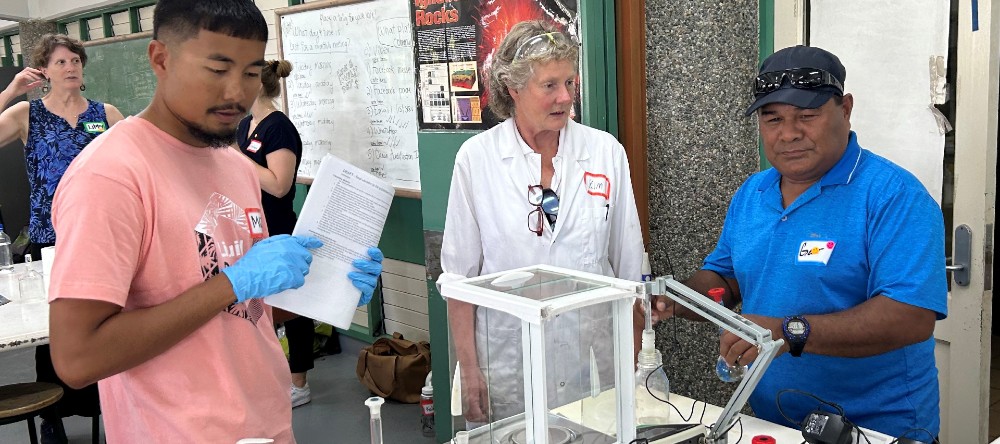- Research
PICRC research assistants attend ocean acidification training workshop in Fiji
Earlier this month, two research staff from the Palau International Coral Reef Center (PICRC), Geory Mereb and McQuinnley Mesengei, attended an ocean acidification training workshop in Suva, Fiji. The workshop was organized by The Ocean Foundation, the Global Ocean Acidification-Observing Network (GOA-ON), and the US National Oceanic and Atmospheric Administration (NOAA) Ocean Acidification Program.
Mereb and Mesengei joined 16 other participants from nine Pacific Island States from February 1-3 to participate in hands-on training with the equipment PICRC has received in 2018 as part of the “GOA-ON in a Box” program. This kit has been utilized to analyze a handful of seawater samples that were collected during our Coral Reef Monitoring and eDNA projects. The program grants a set of laboratory and field equipment to chosen applicants, with the long-term goal of expanding carbonate chemistry monitoring and increasing capacity of scientists in developing countries to measure ocean chemistry.
The training included a refresher in carbonate chemistry and the potential impacts of ocean acidification (OA), practice in the laboratory and the field, and data interpretation. “We had a chance to fine tune our research plans through one-on-one conversations with the trainers,” said Mesengei. “These conversations focused on ongoing monitoring projects, best practice in site selection, instrument maintenance, and data and metadata management.”
The workshop comes under the Sustainable Development Goal 14.3 “Minimize and address the impacts of ocean acidification, including through enhanced scientific cooperation at all levels”. Specifically, the participants got familiar for the requirements for subgoal 14.3.1: “Average marine acidity (pH) measured at an agreed suite of representative sampling stations”. They received guidance on the standard operating procedures and methods approved by the OA community. This will enable the collection and comparison of OA data worldwide.
“The skills that I learned at this workshop will allow me to conduct meaningful OA research here at PICRC,” said Mesengei. “The research will help us to better understand our oceans so that we can effectively advise policymakers and resource managers for local-scale administration, which will then have a ripple effect to the rest of the world.”
“Our training allowed us to better support the Center’s efforts in creating a state-of-the-art OA laboratory and a high-quality OA monitoring program that will not only provide information from our waters but can be a regional resource for other Pacific Islands concerned about the impact of OA in their waters,” stated Mereb.


